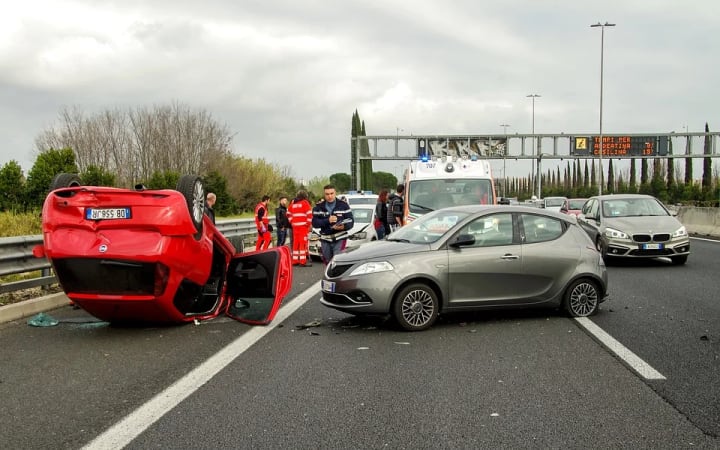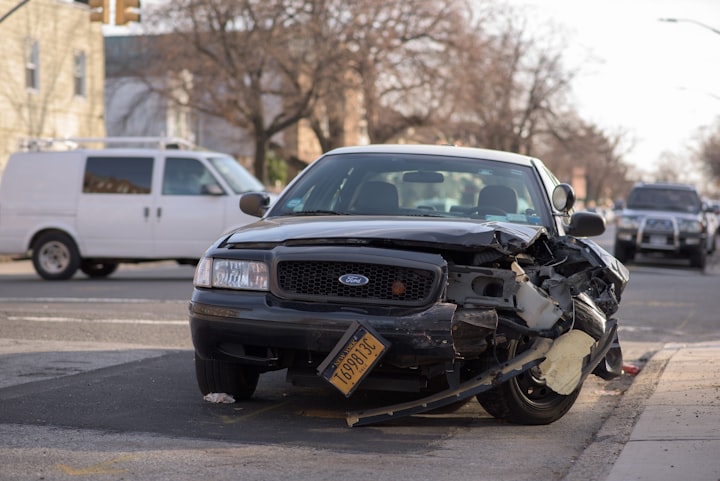7 Things to Do After an Automobile Accident
What should you do after an automobile accident?

Accidents can happen from time to time, even when we’re very careful. After an automobile accident, it’s easy to be stunned with complete shock or angered at the person who ran a red light.
The first thing you can and should do after you’ve been in an accident is to stay calm.
As you know, the post-accident process is quite straightforward, but it’s never too easy. Therefore, staying calm will help you document the whole thing more accurately and thoroughly.
Use the following tips to prepare yourself to properly handle the wearing aftermath of a car accident and to make the entire process more effective and efficient.
#1. Do Not Leave the Scene
As obvious as it sounds, you should never abandon the scene of an automobile accident, at least not until each aspect has been carefully processed, according to the Insurance Information Institute (III).
Note that this step is especially relevant if the passenger was injured, meaning if you decide to leave the scene where a person was severely injured or, in worse scenarios, killed, you could be charged with some serious criminal offenses.
Therefore, it will be in your best interest to never leave the scene of a fender bender.
#2. Check for Possible Injuries
Once the accident occurs, make sure to check immediately if someone’s hurt. If so, grab your phone and call 911 ASAP to get an officer and ambulance on the scene.
Even if it’s a minor fender bender and everyone involved seems cooperative, you should always call the police. This way you will have a written report that you can provide to your insurance company.
Calling 911 after a car accident is legally required in some states. The responding team will fill out an official report and document the whole scene. If the officers cannot show up at the scene, consider visiting the nearest police station in order to file a report yourself.
#3. Move to a Safer Location

If the cars involved in the accident are still functional, get them off the road.
Consider pulling the vehicles off the main road completely to avoid further collisions caused by other cars. If you have reflective emergency triangles or flares, use them up to warn approaching vehicles.
And, most importantly, if you sense a risk of explosion, make sure to get everyone off the scene right away.
#4. Make An Honest and Accurate Record
As soon as the officers arrive at the scene, explain everything—to the best of your ability—to them. If you aren’t aware of certain facts, make sure the officer knows it.
Never guess, speculate, or even misstate stuff. If they ask you whether you’re injured and you don’t know for sure, say that you aren’t certain instead of no.
Often times, the injuries and pain from car accidents become apparent several hours after the collision.
Furthermore, you need to ensure that statements made by others involved in an automobile accident are fairly accurate, too.
#5. Take Photos
If you have a camera or smartphone with you, make sure to take some photos of the scene, as well as the cars, especially if there’s visible damage. This can be helpful if you know you weren't at fault and need evidence to prove it.
However, interfering with the on-going police investigation wouldn’t be a good idea. Just take pictures before the ambulance arrives or do it in a way that doesn’t hinder the investigation process.
#6. Exchange Information

Texas is infamous for being the leader among the U.S. states when it comes to car accidents. About 3,000 people are killed each year as a result of car crashes in this state.
If you happen to often drive in Texas, you should know that a Texas Crash Report is officially titled as the “CR3 Peace Officer Report.” Usually, it is the investigating officer who collects this information. It’s used by law enforcement to record details concerning automobile accidents.
The details in the report are typically recorded by the officer who arrived at the scene. But if the police couldn’t attend the scene, you can file your own report and the state will give you a form titled CR2 Driver’s Crash Report.
After the accident, try to get information about insurance if possible. Consider asking for the insurance card for each vehicle involved. If there are witnesses nearby, get their names and numbers, too. That way, you’ll be able to provide eyewitness information to the police and your insurance company.
#7. Keep the Entire Conversation Constructive
As mentioned earlier, emotions will be running left and right in situations like this, so try to keep a cool head.
It's neither for you or the other party to decide who is at fault.
Just make sure to exchange crucial information and let the insurance companies sort out the rest. Write down whatever you can remember about the accident, including the time of day, road conditions, weather, location, etc.
No pen and paper? Forget them. Use your phone to take notes and record everything.
Being in an automobile accident can be very stressful. If you feel like you said something wrong to the driver in the aftermath, or forgot to take pictures, it's not the end of the world. Chances are, he/she didn’t play by the rules either.
Wrapping Up
You don’t expect to be involved in an accident. No one does. Sadly, though; it can happen in the blink of an eye—whether it is your fault or the other person’s.
The steps mentioned above will help you ensure evidence from the accident is properly preserved, you get immediate medical attention, and your civil rights are protected.
Also, make sure to pay close attention to each step mentioned concerning the insurance company. We suggest you speak with an attorney before giving any recorded statement to your insurance representative.
Note that the other party will try to push you into admitting you were at fault. Under no circumstances should you accept or indicate responsibility for what happened and undertake any sort of commitment.
You need to protect your rights and get help from an experienced representative. A legal attorney will ensure you’re fully compensated regarding bills and medical expenses.
If you found this article helpful, feel free to share your thoughts and suggestions with us in the comments below.






Comments
There are no comments for this story
Be the first to respond and start the conversation.